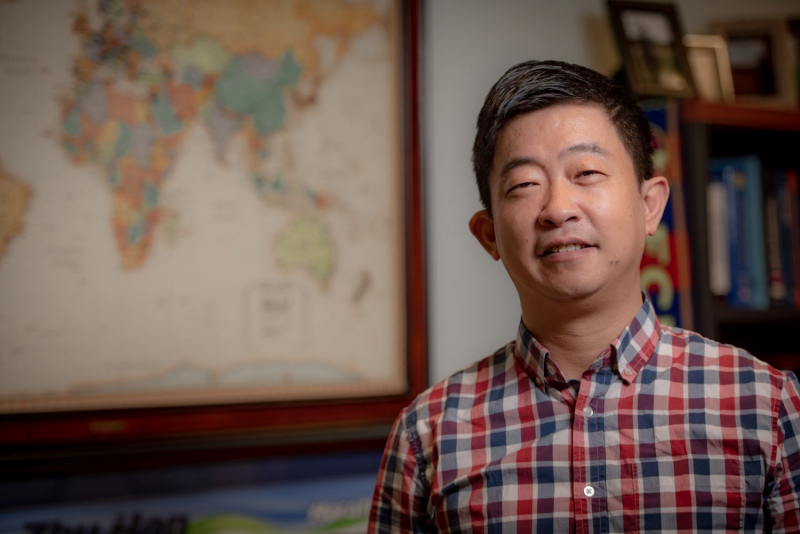Each year, Clarivate identifies the world’s most influential researchers ─ the select few who their peers have most frequently cited over the last decade. In 2021, 6,602, or about 0.1 percent, of the world’s researchers, in 21 research fields and across multiple fields, have earned this exclusive distinction. Of the total, 3,774 are recognized in specific fields and 2,828 for cross-field performance.
The 2021 Highly Cited Researchers™ ranking includes three University of Houston researchers: Zhifeng Ren, M.D. Anderson Chair Professor of physics, Shuo Chen, associate professor of physics, and Zhu Han, Moores Professor of electrical and computer engineering. Chen and Ren are Texas Center for Superconductivity at University of Houston (TcSUH) principal researchers who were recognized for their performance across fields.
This is the fourth year that Clarivate identified researchers with cross-field impact. This elite group is recognized for their exceptional research influence, demonstrated by producing multiple highly cited papers that rank in the top 1 percent by citations for field and year in the Web of Science™.
“I am thrilled to note that our TcSUH researchers are, again, in the top 0.1% of productive and impactful researchers worldwide,” said Amr Elnashai, vice president of research and technology transfer at UH. “Having faculty amongst the most highly cited in the world is a testament to the ongoing and expanding research excellence at the University of Houston.”
Han has been cited 52,947 times, according to Google Scholar, with 37,933 citations since 2016. He has an H-Index of 91 in the past five years. His research is primarily in the fields of game theory, wireless networking and security, data analysis, and smart grid technology. He was the 2021 recipient of the Institute of Electrical and Electronic Engineers' Kiyo Tomiyasu Award.
He was pleased to be recognized by Clarivate again, first qualifying for the ranking in 2017, and earning the distinction every year since.
“With strong support from the University of Houston and colleagues at the Cullen College of Engineering and the College of Natural Sciences and Mathematics, I hope I can continue to keep my research pace and this highly cited researcher honor until my retirement,” said Han.
Chen, a faculty member at UH’s College of Natural Science and Mathematics, was cited 9,645 times for 63 publications, with an H-Index of 40 in the research fields of materials science.
Her research focuses on synthesis, microstructure, and electronic structure understandings of materials for energy conversion and storage, including batteries, electrocatalysis, and thermoelectrics.
Ren, director of TcSUH, was cited 44,675 times for 319 papers, with an H-Index of 92 in the research fields of physical sciences. Ren has been included on the Highly Cited Researchers list since 2018.
His research interests include high-performance thermoelectric materials and devices, catalysts for water splitting to generate hydrogen, nanomaterials for enhanced oil recovery, ultrahigh thermal conductivity in boron arsenide, biodefense applications for killing airborne viruses, superconductivity, solar energy conversion, flexible transparent electrodes, thermal management, mechanics of carbon nanotubes and other nanowires, and nanocomposites, bioagent delivery, and biosensors.
For 2021, the Highly Cited Researchers are based at more than 1,300 institutions all over the world. The list includes 24 Nobel Laureates.
The Highly Cited Researchers list is produced each year by the Institute for Scientific Information™ at Clarivate. The institute has pioneered the organization of the world’s research information for more than half a century. Today it remains committed to promoting integrity in research while improving the retrieval, interpretation, and utility of scientific information. It remains the knowledge corpus upon which the Web of Science™ index and related information and analytical content and services are built.
